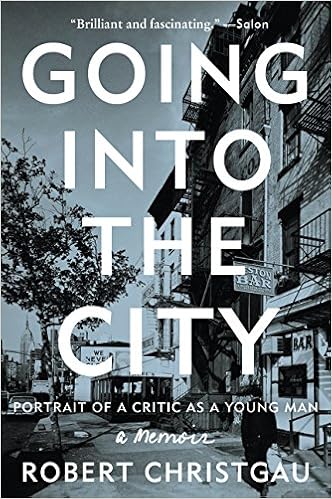 Shrillness is not how I'd describe Mailer's late work, since he abandoned addressing himself in the third person with "The Executioner's Song". From that book onward, Mailer's self-announcing presence has noticeably receded and the narrative itself took priority. For something approaching "shrillness", you have to go back to "Advertisements for Myself" and "Why Are We In Vietnam?", writings filled with exuberance, ego, loud clashing verbs and careening metaphors.
Shrillness is not how I'd describe Mailer's late work, since he abandoned addressing himself in the third person with "The Executioner's Song". From that book onward, Mailer's self-announcing presence has noticeably receded and the narrative itself took priority. For something approaching "shrillness", you have to go back to "Advertisements for Myself" and "Why Are We In Vietnam?", writings filled with exuberance, ego, loud clashing verbs and careening metaphors.It was a style that worked for Mailer for a long period, and the author was smart enough to have given it up before it became that rote, breathless template that a more promiscuous writer like Joyce Carol Oates relies on. Regardless of what you think of him as person, Mailer's "The Gospel According to the Son" is not a novel inspired by any hysterical force; it is calm, simply phrased, poetically spare, and effective as in result in it's evocation of Christ's burden of being both of heaven and of earth. Mailer's presence and his ideas are always noticeable in his later work, but there's a mature,yes, mature voice at work here which has served him well.
The problem with much of the nay saying of Mailer's writing is that some act as if he hasn't changed his style. To think so is not to have read him closely at all it seems.Christ has been a character in novels and in film, so Mailer's brief recasting of the Greatest Story Over Told is hardly an exercise in ego gratification. Mailer has some well known ideas about God that he's written about over the decades, and it was rather a surprise that he could weave them into the Christ story as delicately and successfully as he had. Perhaps you should read the book before condemning it out of hand. A little less tub thumping is called for. If you don't like it, at least you'll be in position to discuss the degrees of it's flaws with authority. You'll be in the position to critique it as a novel, not an audacious act.
Flaubert's notion for the "impersonal artist" is a fine theory and works well with respect to writers with similar aesthetic values as the author of "Madame Bovary". It's not the only idea in how literature and art ought to made however, and certainly applying it to Mailer's aims as a novelist is a bit besides the point. Impersonality in writing is more a goal than anything achievable, I would say, and it's only in the reaching for the result that one might end with interesting results. Genius enters into the equation, as in not all writers have equal abilities, whatever standard they avow. Nakedness as a value in writing works only as well as the writer who decides to make it an operating concern, and it worked well enough for Mailer in the early and middle points of his career, a projection of the self hardly more assaulting than Whitman's or the cynical rumblings of an older Mark Twain. Mailer, as I said before, left this persona behind in 1979 with the publication of his masterful "Executioner's Song",when he he realized that after a couple of decades of theorizing about violence and killers, he needed to conceal his presence and tell the spectacular and complex story in front of him.
A wise decision, and a method he's wisely maintained with each books. "Harlot's Ghost","Oswald's Tale" are not the aggravated spewings of an egomaniac trying to flummox readers with hyperactive vocabularies; the books, central efforts in his late period, are carefully wrought works of historical narrative, brilliant and flawed. For Mailer's ideas, these are not the rants of a young hothead picking an argument, but of a mature artist Making A Case. To say that there are too many books and novels about Hitler is patent nonsense. Hitler was such a monster and pall over the last century that it's at our peril that artists, writers, scholars, novelists stop trying to comprehend him. Mailer's has an eccentric take on the formations of the amoral Hitler's unblinking willingness to bring carnage , and for all the snipes and snips from naysayers ,he does evoke the mindsets of those who's self-infatuation and indifference to the results of their actions makes the Devil's grooming of the child for future mischief seem plausible in a fictional narrative.









